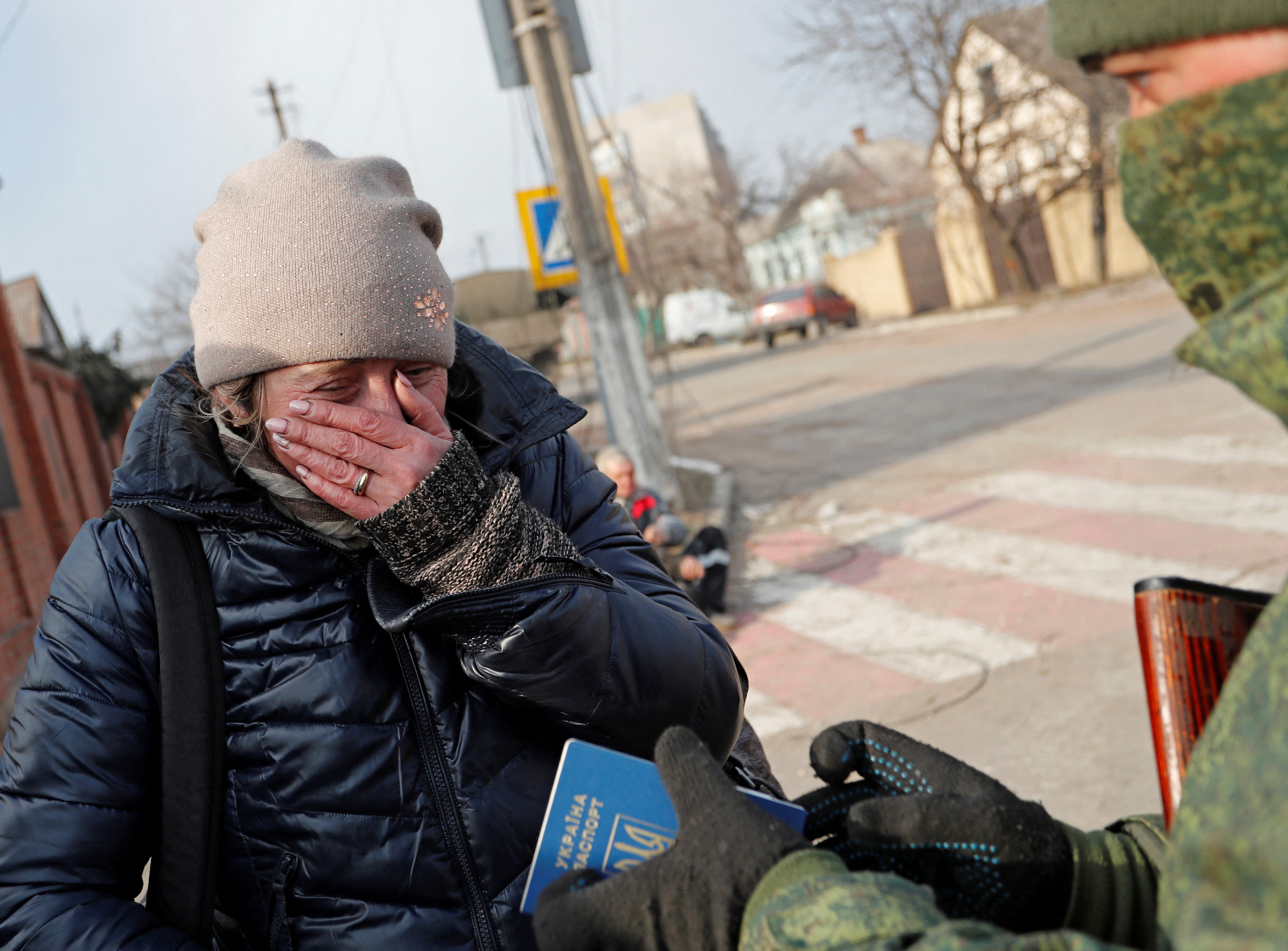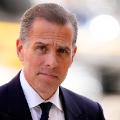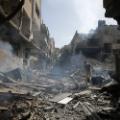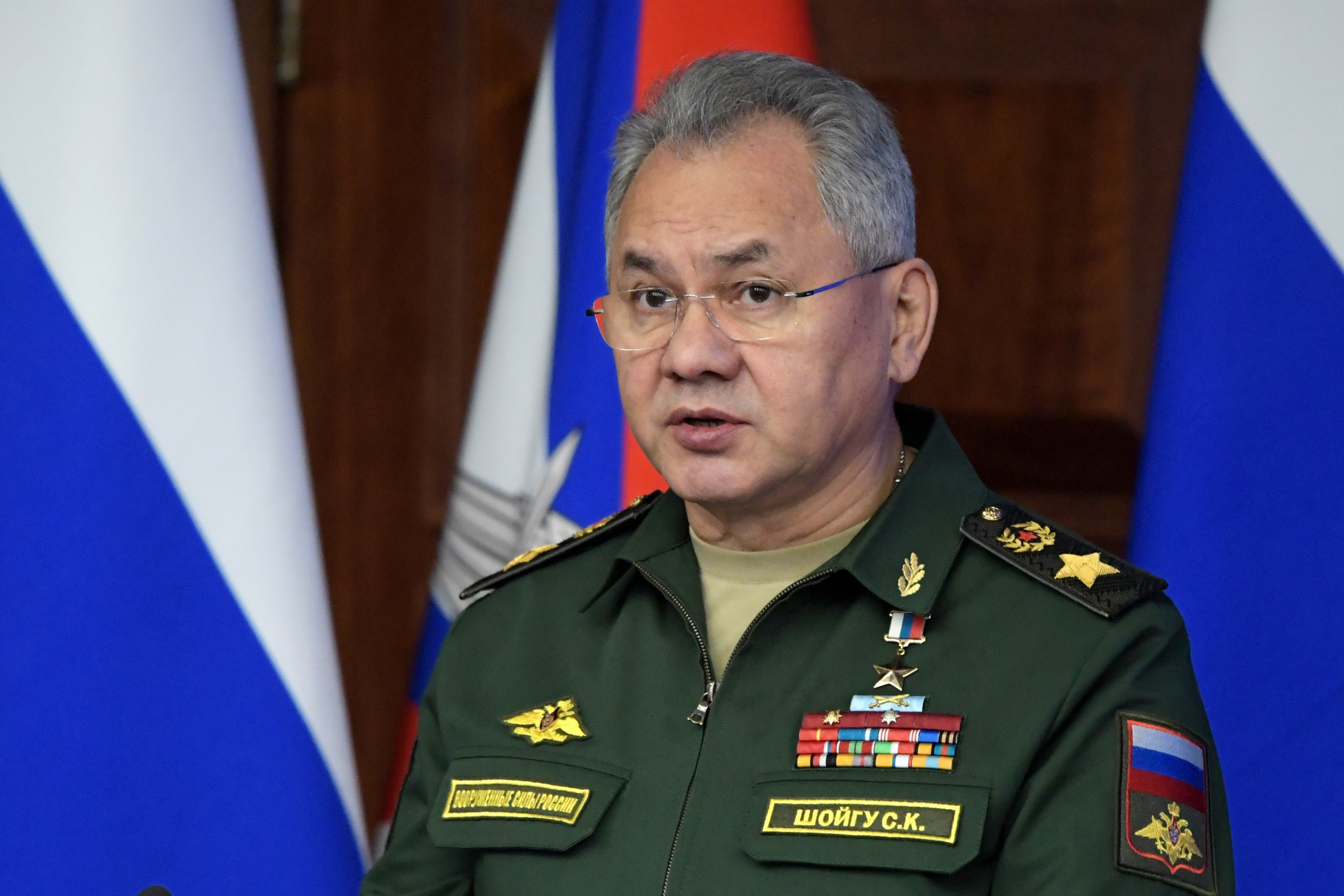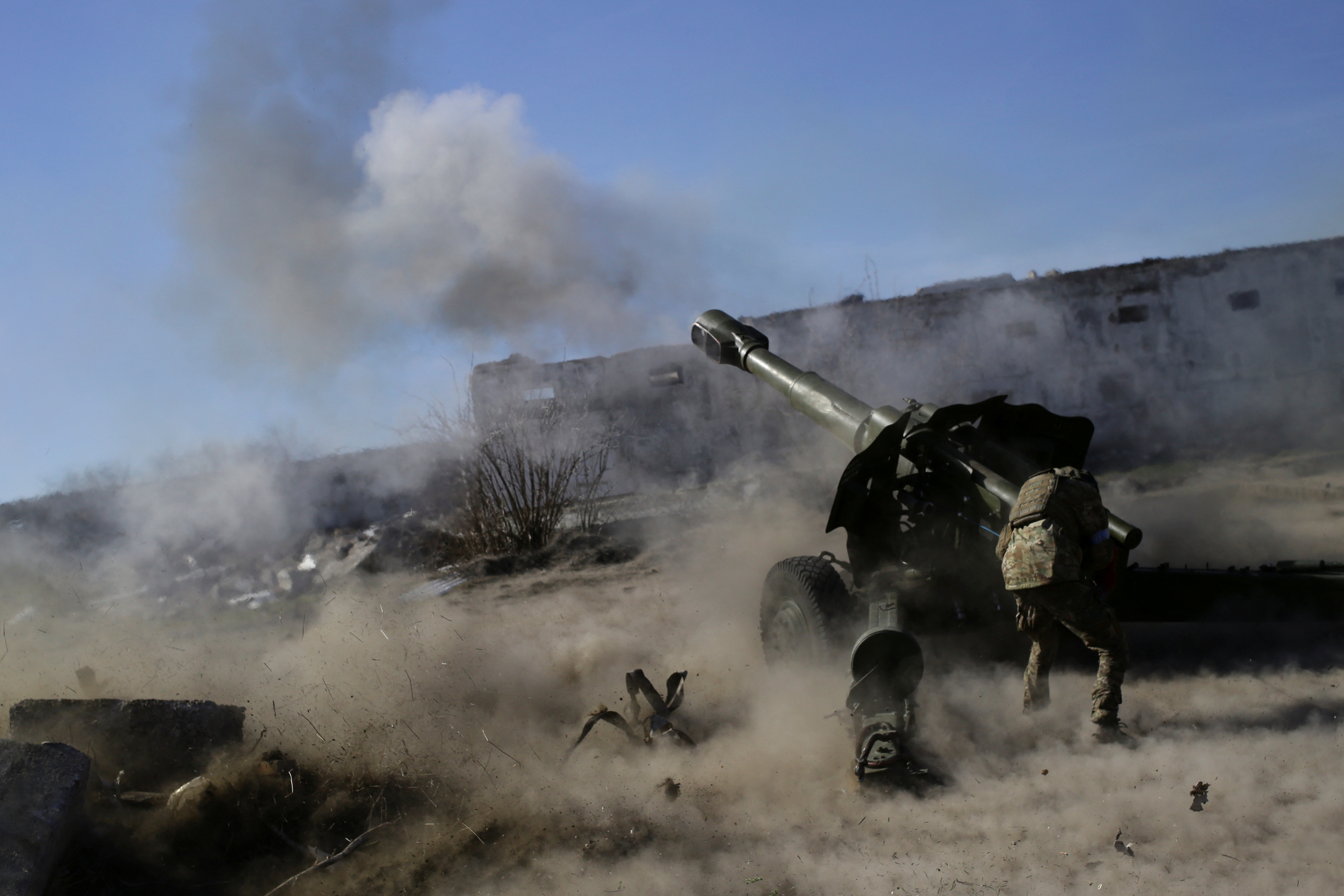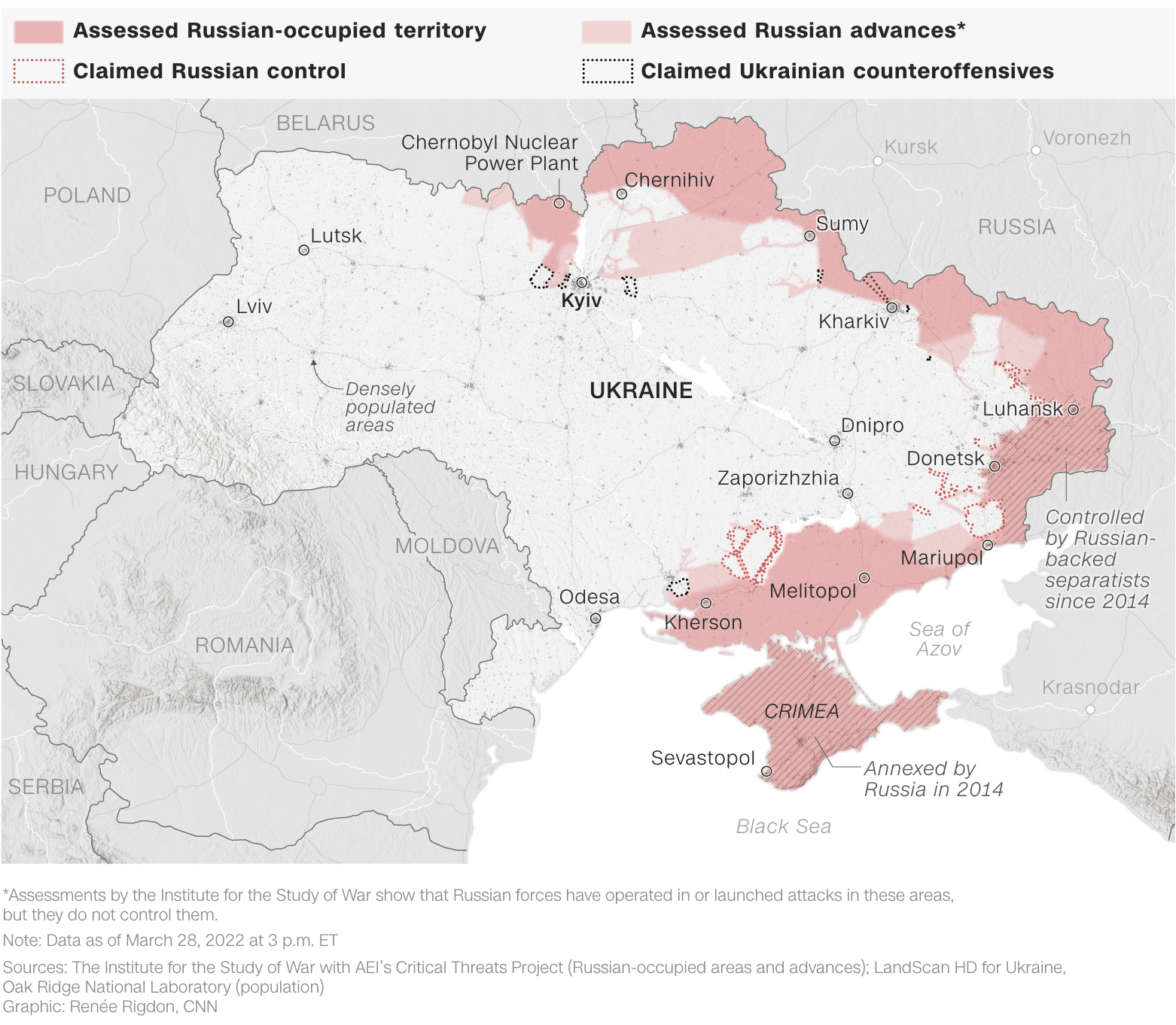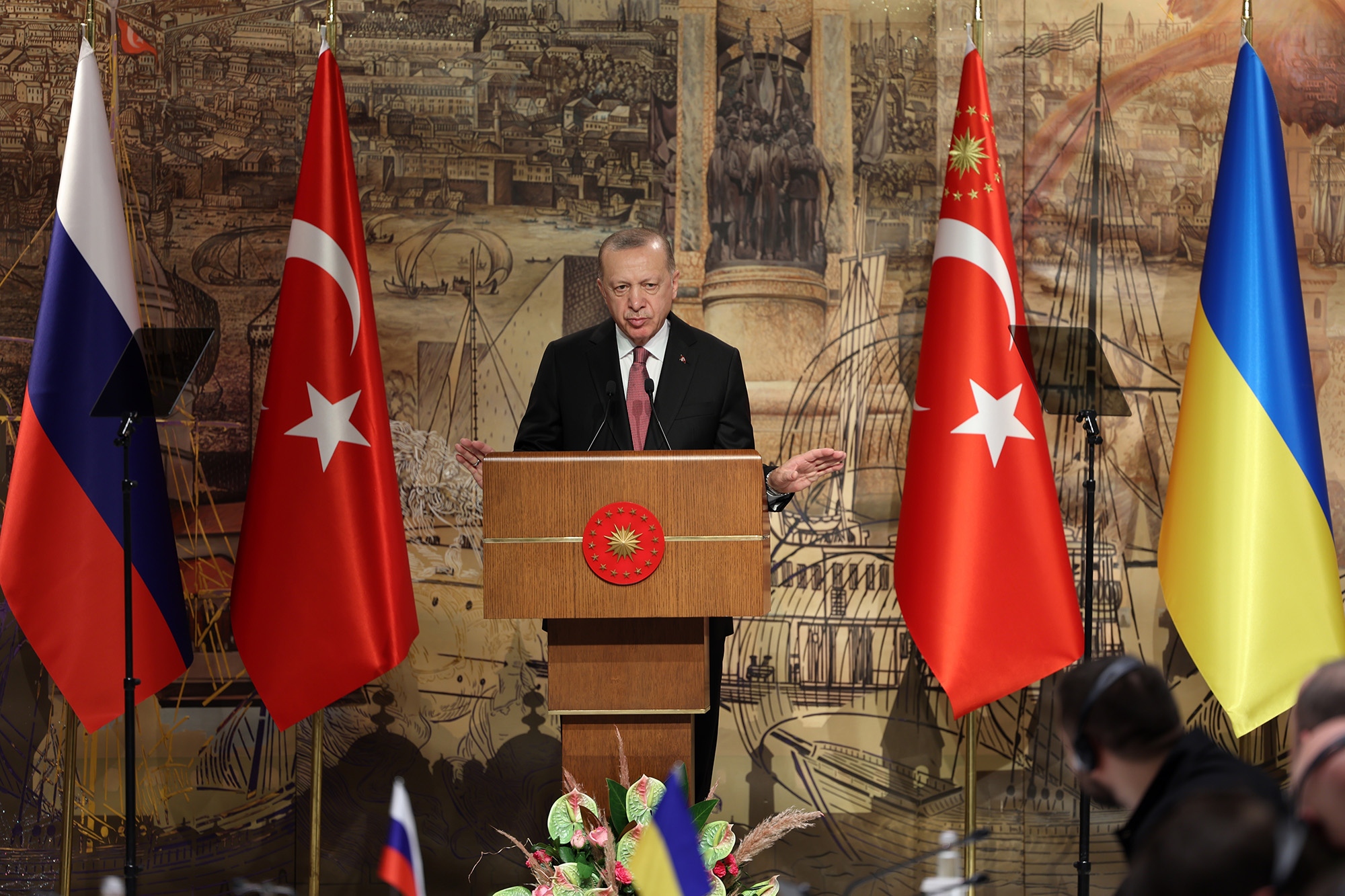In an interview Sunday with Russian journalists, Ukrainian President Volodymyr Zelensky spoke at length about an important point in potential peace negotiations: the possibility of neutrality for Ukraine.
“We are ready to accept this,” Zelensky said. “This is the most important point.”
Zelensky and Ukrainian officials have long said they are willing to talk about neutrality for Ukraine if NATO is not ready to accept the country as a member of the alliance.
That, in theory, would meet one of the demands of Russian President Vladimir Putin: that Ukraine gives up its NATO aspirations.
But it’s not as simple as that. Zelensky has also made it clear that Ukraine would reject “neutrality” without legally binding security guarantees. And with Ukraine under invasion by Russia, the Ukrainian leader has said he isn’t interested in empty promises.
“I'm interested in making sure it's not just another piece of paper a la the Budapest Memorandum,” he said.
Zelensky was referring to a little-remembered moment in post-Cold War history. With the collapse of the USSR, Ukraine – on paper at least – came into possession of the world’s third-largest nuclear stockpile.
Russia did maintain operational control of those weapons, but Ukraine signed an agreement in 1994 to give up the nuclear weapons stationed on its territory in exchange for security guarantees, including the protection of the territorial integrity and political independence of Ukraine. That’s something Russia, a signatory to the Budapest Memorandum, decisively trampled on with the annexation of Crimea in 2014 and the invasion of Ukraine in February.
Mykhailo Podolyak, a senior adviser to Zelensky, has said that security guarantees must, in essence, include a commitment from guarantors to assist Ukraine in the event of aggression.
And it’s important to add that neutrality – of a sort that Putin might find palatable – is not something Zelensky can simply offer up. Aspiration to NATO membership is enshrined in Ukraine’s constitution.
That’s where Zelensky gave Russian interviewers a bit of a lesson in Ukraine’s democratic processes. Security guarantees, he explained, would have to be followed by a referendum in Ukraine.
“Why? Because we have a law about referendums,” Zelensky said. “We have passed it. Changes of this or that status... And security guarantees presuppose constitutional changes. You understand, don't you? Constitutional changes.”
And therein lies the difference. Russia has a political system built around one man — Putin — and Zelensky is the head of a democratic state. Even if neutrality is on the negotiating table, the Ukrainian people will have to have their say.
